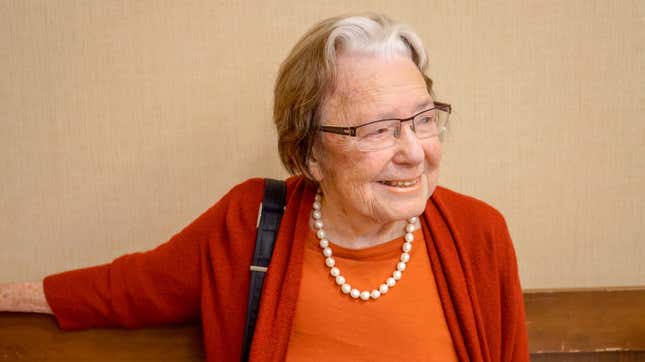Physicist Myriam Sarachik Overcame a Lot Of Sexism to Get Where She Got
Latest

A physics professor at the City College of New York is finally getting her due. In January, at the age of 87, Dr. Myriam Sarachik won the Medal for Exceptional Achievement in Research, a top honor of the American Physical Society, the New York Times reports. But on top of her breakthroughs in research, she also had to fight through nearly insurmountable sexism to get into science at all.
Sarachik was already making great strides in her field when she gave birth to her first daughter, who she set aside her work to stay home with. But she realized soon after that being a stay-at-home mom, even in the short term, wasn’t going to work. She decided to go back, but unlike her classmates, she was unable to land any job interviews. Feeling desperate, she begged one of her professors for help:
“I asked him to please help me,” Dr. Sarachik said. “He argued with me long and hard. He said, ‘You don’t really want to do what you think you want to do. You don’t want to do research. Maybe you should take a part-time teaching job.’ And I said, ‘No, I want to do research.’”
She eventually landed a job at Bell Labs, where she noticed an “odd electrical resistance problem.”
Her finding caught the attention of Jun Kondo, a Japanese physicist, who had calculated a theory that fit with Sarachik’s data. The phenomenon became known as the Kondo Effect, but despite Sarachik’s role, “I got no recognition for it for years,” she said.
After that insult, she decided to look for a new job—but finding one proved to be a struggle. While her husband fielded job offers from all over, no one was interested in hiring Dr. Sarachik, despite her accomplishments. Things were just starting to look up after she got a job in the physics department at City College when her daughter was murdered.
“We had a disastrous family disaster, which took me out of commission pretty much for 10, 15 years,” she said during her ceremony in January.
Nevertheless, she returned to physics, conducting several “paradigm-breaking experiments” before she retired.
“Women are no better and no worse at doing physics than men are,” she said in January. “They are, however, at least if they’re my age, more persistent. It’s tenacity. It’s the will not to be pushed out.”
Read the full profile here.